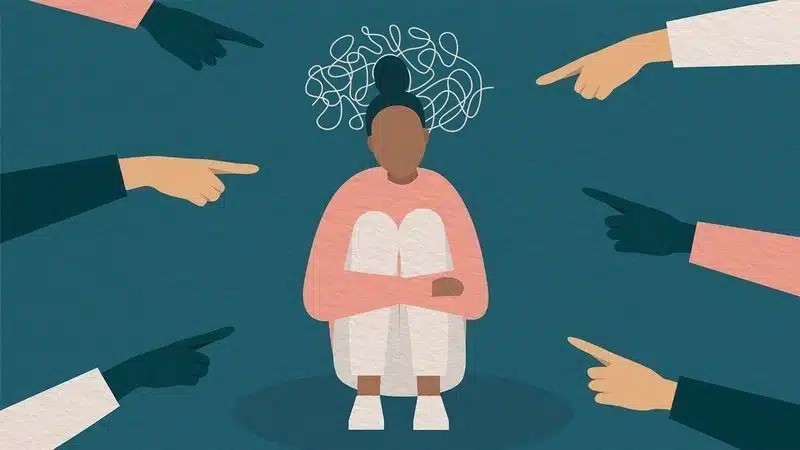In the US state of Washington, there’s a good number of support systems for ADHD; these systems offer practical assistance for individuals dealing with the not-so-pleasant challenges of the condition in question. From educational resources to community organizations, there are various ways of reaching out for help and guidance.
ADHD support systems provide valuable tools and strategies to manage symptoms effectively. By reaching out to local support groups, accessing online resources and learning material, or consulting with healthcare professionals, individuals (both children and adults with ADHD) can get the support they need and deserve to ease the pains of daily life with the condition.
What is ADHD? (definition and types)
According to the US government’s Centers for Disease Control and Prevention, ADHD is among, if not the most common, neurodevelopmental disorders affecting children that can also continue into adulthood.
ADHD (short for Attention Deficit Hyperactivity Disorder) symptoms are plentiful, and they include difficulty paying attention, controlling impulses, and hyperactivity. All of these can easily (and significantly) impact academic, social, and familial domains. Additionally, children with ADHD may exhibit behaviors such as daydreaming, forgetfulness, excessive talking, and impulsive decision-making.
Types of ADHD
There are three main variants of ADHD:
- predominantly inattentive.
- predominantly hyperactive-impulsive.
- combined presentation.
Inattentive individuals struggle with organization, focus, and follow-through, while hyperactive-impulsive individuals display restlessness, impulsivity, and difficulty waiting or taking turns. The combined presentation encompasses symptoms of both types. As symptoms may evolve over time, the presentation of ADHD can also change. Therefore, ongoing assessment and support are crucial.
ADHD support systems in Washington State
Here we’ll take a closer look at the offer: what kind of ADHD support systems are available in Washington?
LDA WA (Learning Disabilities Association of Washington)
This nationwide organization offers vital support and resources for individuals and families affected by ADHD in Washington (other US states have their own chapters). Established way back in 1964, LDA has been a staunch, unwavering advocate for individuals with learning and attentional disabilities and ADHD, in particular, among others. Their main objective has always been to enhance personal, educational, and social outcomes.
Through advocacy efforts and collaboration with various governmental and non-governmental agencies, LDA WA strives to raise awareness and improve access to services for those affected by ADHD. By providing cutting-edge information, practical solutions, and a solid network of resources, LDA WA remains one of the leading resources for individuals and families navigating the challenges of the condition in question.
CHADD (Children and Adults with Attention-Deficit/Hyperactivity Disorder)
CHADD, founded in 1987, stands as one of the beacons of support for individuals and families affected by ADHD in Washington (as was the case with LDA; other states have their own chapters).
Originating from the frustrations of parents and guardians seeking understanding and resources for their children with ADHD, CHADD has since evolved into the leading non-profit organization dedicated to ADHD advocacy and support. With its mission to empower individuals with ADHD to succeed, CHADD offers a nationwide community through its chapters and affiliates; it provides education, support, and encouragement to parents, educators, and various other professionals who work with kids with ADHD.
ADHD treatment facilities in Washington State
Many ADHD treatment facilities in Washington offer comprehensive support for both children and adults. Treatment options can include medication, various forms of psychotherapy, and education. Among these facilities, We Level Up Washington (a branch of the We Level Up nationwide network of treatment centers) represents a good example of how this is done and what the right treatment for ADHD should look like. Among other things, this treatment facility offers the so-called dual diagnosis treatment. This stems from a well-known fact: many untreated ADHD adults later turn to substance use as their one and only coping mechanism. Dual diagnosis treatment addresses both conditions – substance abuse and ADHD – simultaneously, aiming to treat the root cause and its consequences.
NAMI’s (National Alliance on Mental Illness) HelpLine
NAMI’s HelpLine at 1-800-950-NAMI (6264) is a valuable resource for individuals seeking support and information about today’s main topic. While not specific to Washington, this helpline offers assistance accessible from any part of the US. Whether individuals have questions about ADHD or need resources to manage the condition, NAMI’s HelpLine provides a friendly and professional go-to place for inquiry.
How to help your loved one(s) with ADHD?
Now that we’ve gone through some of the best places to reach out for ADHD support, here’s some additional information on how to be there for your loved one(s) in need of support.
Learn more about their condition
To truly understand someone with ADHD, it’s crucial to educate yourself about the condition. ADHD encompasses more than just a lack of focus or hyperactivity, with three different types we’ve shown you above presenting varying symptoms. Taking the initiative to learn about the specific symptoms your friend or loved one may experience is key.
Start by attending their doctor’s appointments and asking questions to gain insights into their unique challenges and needs.
Listen to what they’re saying
Listening and communicating are crucial. Tasks that might seem simple to you may feel overwhelming for your loved one due to ADHD symptoms. Understanding this can shift reactions from frustration to compassion.
Offer to find them treatment
For people with ADHD, finding help can be a daunting task. Offering guidance on accessing these resources can be immensely helpful for someone with the condition.
Help them build self-confidence
Many with ADHD are keenly aware of their weaknesses due to years of feedback from teachers and other people in their surroundings. This can, of course, contribute to them having issues with low self-esteem. Therefore, you should always try to highlight their strengths. Recognizing their successes can be a powerful way to uplift and support individuals with ADHD.
Conclusion
ADHD support systems in Washington offer a range of resources, from educational information to therapy (mostly cognitive-behavioral) designed for individuals of all ages. By understanding the condition, accessing available treatments, and promoting a supportive environment, those affected by ADHD can thrive and succeed. Remember, seeking help is a positive step towards managing ADHD symptoms and achieving personal growth.








Leave a Reply
You must be logged in to post a comment.